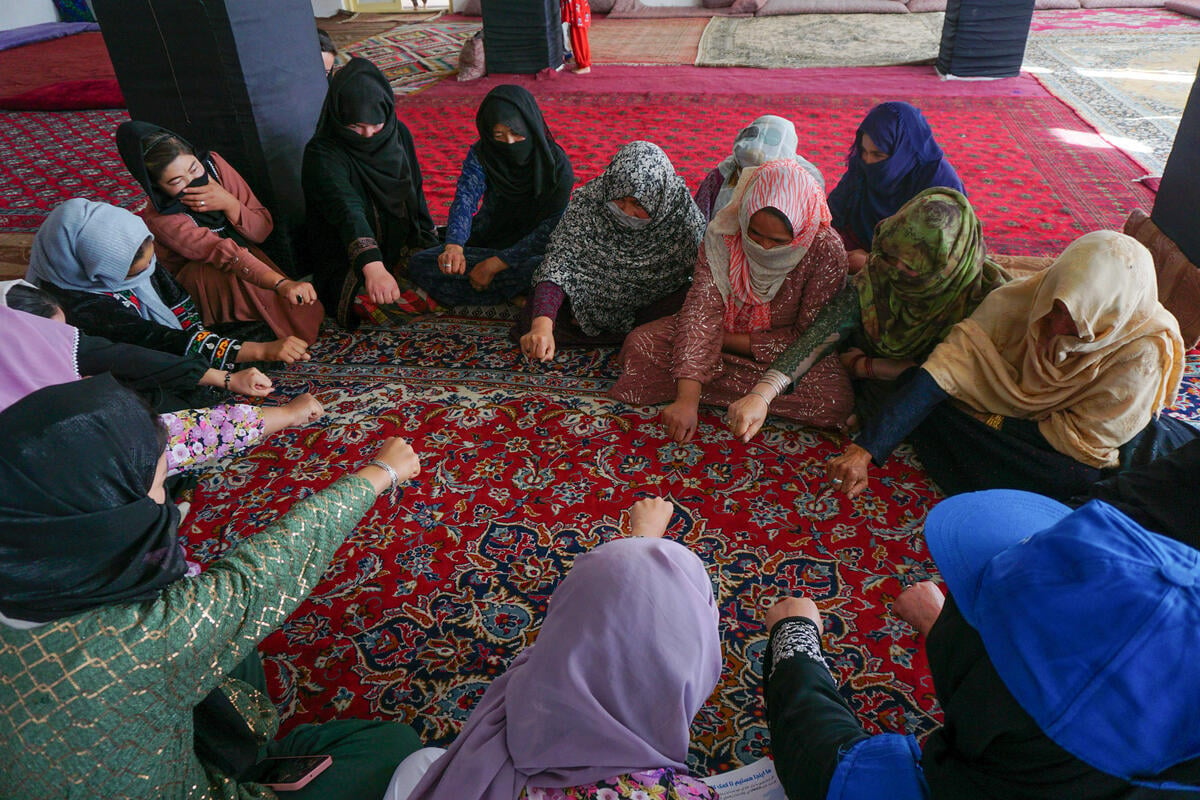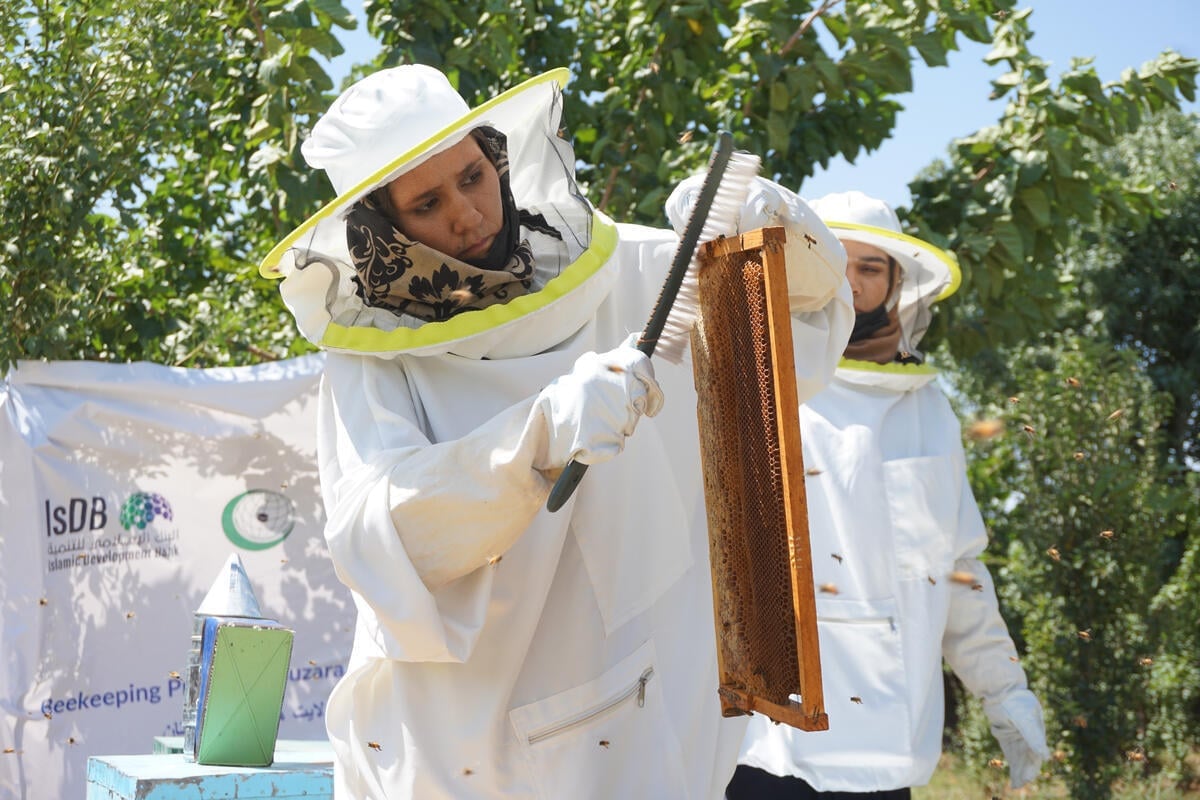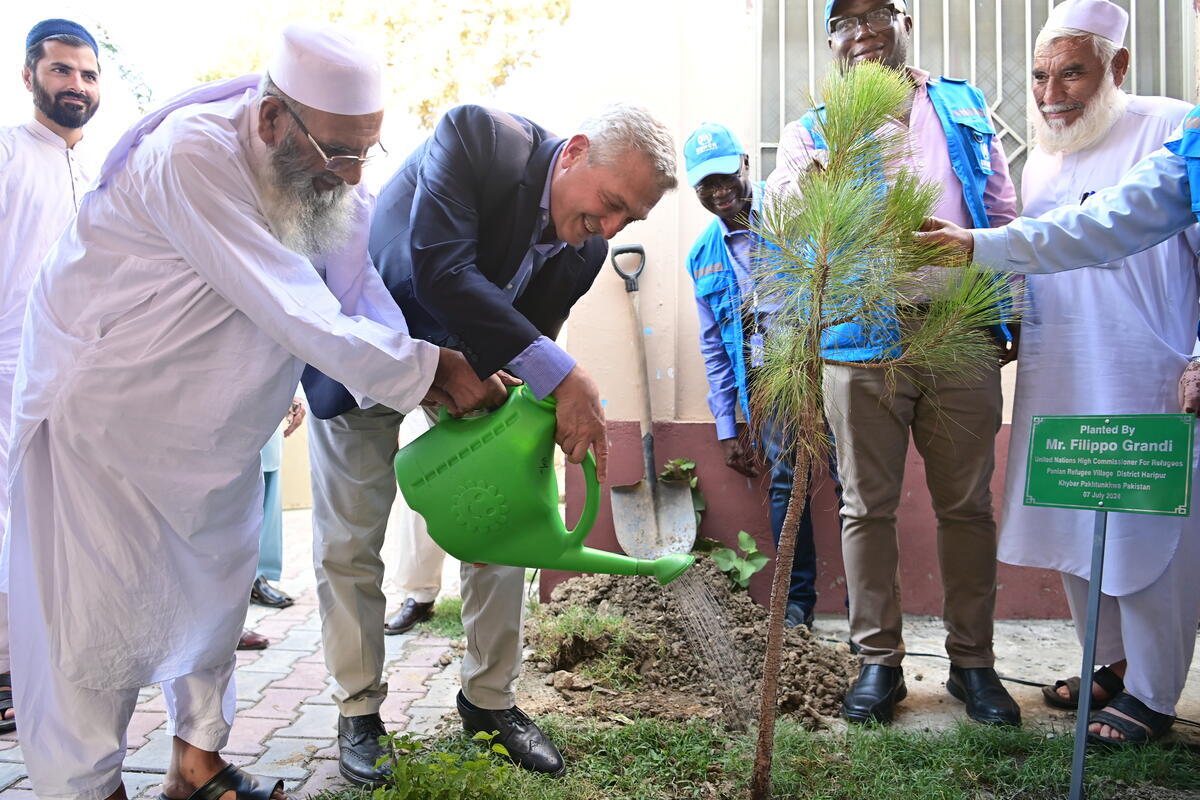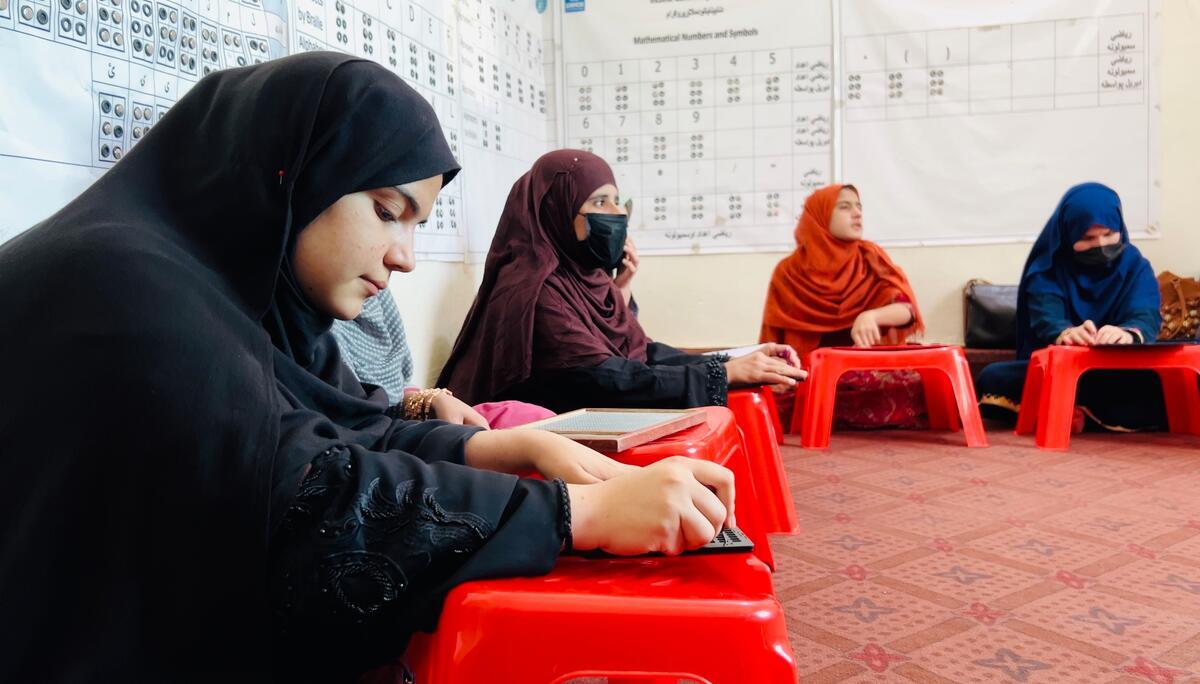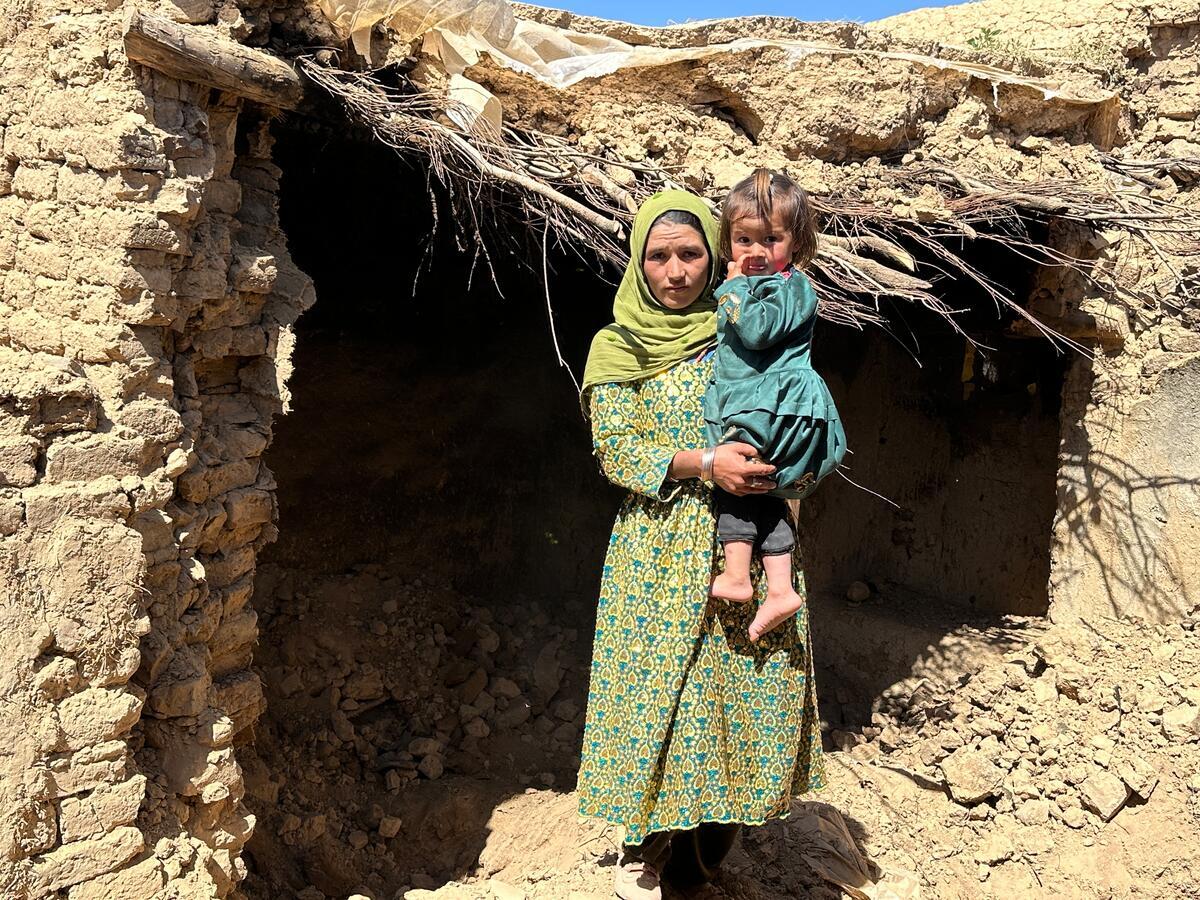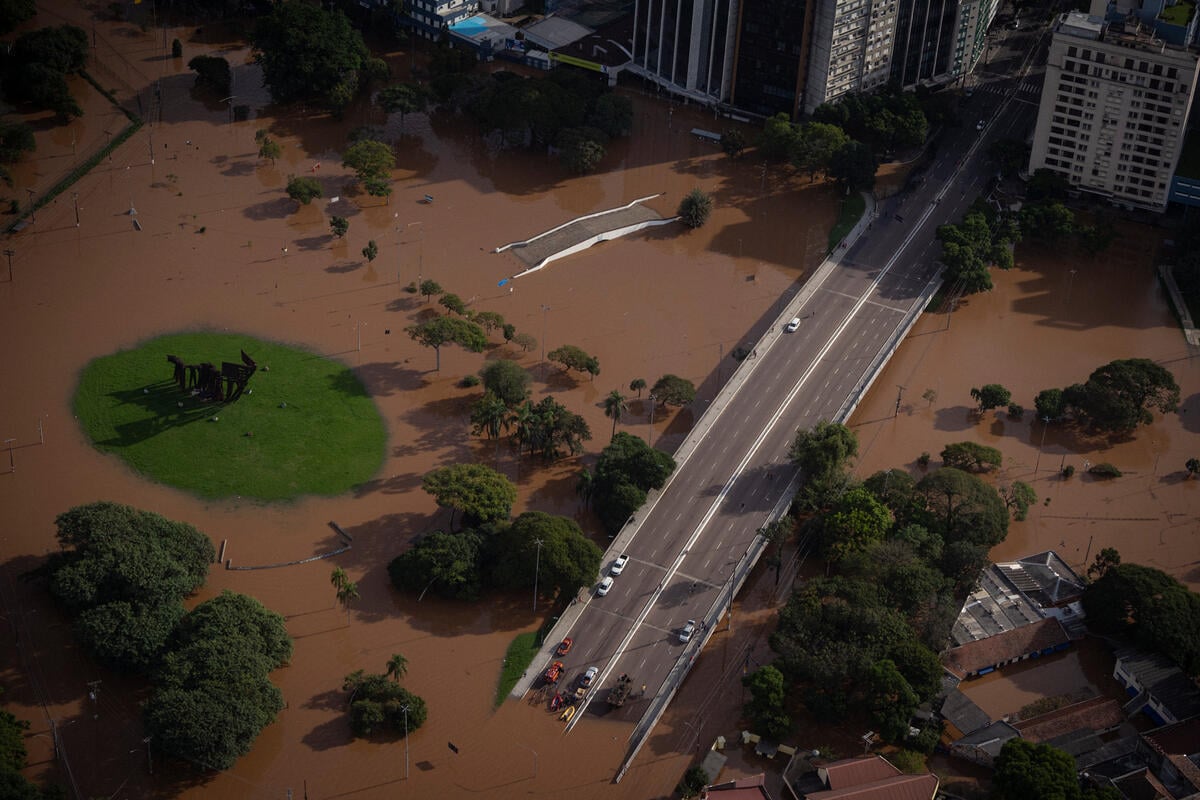UNHCR's Assistant High Commissioner for Protection visits Afghanistan, urges for sustainable solutions to displaced Afghans
UNHCR's Assistant High Commissioner for Protection visits Afghanistan, urges for sustainable solutions to displaced Afghans
KABUL, Afghanistan - The United Nations Assistant High Commissioner for Protection, Mr. Volker Türk, during his visit to Afghanistan, urged the international community and the Government to ensure that the immediate and longer term needs of returnees, internally displaced people and affected communities are given the necessary attention and support to address the need of these populations comprehensively.
The surge in returns last year, with more than 370,000 registered Afghan refugees and a similar number of undocumented arriving, has placed an additional strain on already overstretched services and resources in the country. According to UNHCR’s return monitoring, access to basic services, land and employment are major concerns, in addition to security.
In the past decade, Afghanistan has also seen increased internal displacement due to the ongoing conflict. 2016 saw an estimated 660,500 new conflict-induced Internally Displaced Persons (IDPs). An estimated 1.3 million IDPs remain in a protracted situation, needing both continuous humanitarian assistance and efforts to find sustainable solutions including through access to shelter and livelihood.
Mr Türk acknowledged the challenges the country faces in absorbing large numbers of returnees in 2016. He emphasized that it is “key that returns to Afghanistan take place based on a free and informed choice, are voluntary, gradual and respect the principles of safety and dignity. The challenges that Afghanistan faces today are enormous.
The Chief Executive of Afghanistan and other senior government officials reaffirmed the Government's strong engagement, through the adoption of National Priority Programmes, and the Citizen’s Charter in particular, to resolve the displacement challenges and pursue sustainable reintegration efforts to assist returning Afghan refugees and IDPs.
“We very much welcome that refugees who have returned and IDPs are now fully included in national development programmes. A lot of work lies ahead to ensure that these commitments are translated into concrete realities on the ground at all levels.” said Mr. Türk.
The UNHCR delegation met with Afghan refugees who had returned and internally displaced people, the Chief Executive, the Minister for Refugees and Repatriation, the Deputy Ministers for Foreign Affairs and Finance, the UN Country Team, the diplomatic community and NGO partners as well as representatives of the civil society.
The Delegation will also travel to Pakistan to continue the discussion on the impact of the displacement in the region. About two million registered Afghan refugees are still living in the Islamic Republics of Iran and Pakistan. In addition, it is estimated that an equal number of undocumented Afghans with similar protection and reintegration needs continue to reside in these two countries.
“I have the deepest admiration for the people of Afghanistan, many of whom have experienced displacement often multiple times in their lifetime. It is humbling to see how strong they are in facing this predicament and it is upon all of us that the women and girls, boys and men of Afghanistan have a much brighter future ahead”, concluded Mr. Türk.


